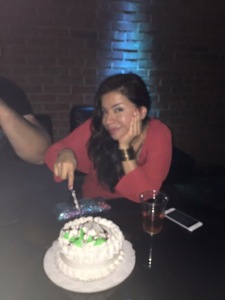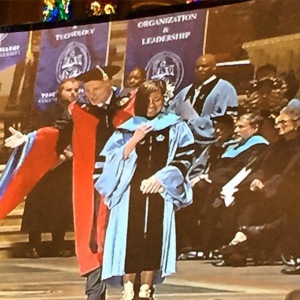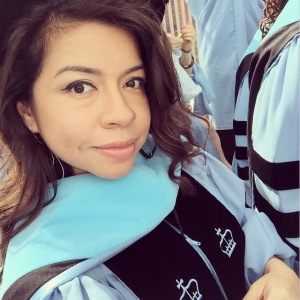Just over two years ago, I was invited by the Brooklyn Museum to speak about any issue I chose for LatinX Heritage Month. What I did instead was organize a panel which included Sofia Quintero, Daniel J. Older, and Aurora Anaya-Cerda to discuss the future of LatinX Literature. During that evening, I mentioned the courage Latinxs must have to write in a society that continues to feed, educate, and force us to believe mythologies associated with White Supremacy. We described that courage as the audacity of the Latinx voice. To constantly correct inaccuracies about Latinxs. To continue to write despite being told that our voices don’t matter. And even when we know we cannot eradicate the misperceptions of Latinxs in our lifetimes, we still continue to do it. I admire this audacity in fellow colleagues and media outlets like Latino Rebels that have a consistent record of raising their voices to fight White Supremacy and anti-Latinx sentiment – and why I was disappointed that Latino Rebels published a piece titled “In Defense of Columbus”.
It is in this spirit – the audacity of my Latina voice – that I write this piece. This is not so much a response to the now controversial piece published by Latino Rebels (and other Latinxs who continue to defend Columbus), but my hope to extend this conversation by using my reasons for my public critique of Latino Rebels’ decision (to publish the defense of Columbus) to explore the Latinx intellectual tradition, a tradition that is not clearly articulated or publicly understood. Here is my first attempt.
As I reflect back on my own Voice, I am cognizant of one common theme – a condemnation of Whiteness and White Supremacy (although I did not have the vocabulary to articulate this as a child). Among a few questions I had, I wondered why was I called Sambita and why was this a bad thing? I wondered why some Latinos on TV hated Blackness and Black people so much? I didn’t understand why some Latinos were so invested in Whiteness. I had many questions.
To answer these issues, I often searched on my own. I first tried to understand what being Ecuadorian means but because back then there was no internet my search was limited to the books my dad and I found on the street, the encyclopedias my parents made sure they had at home, and older cousins’ stash of magazines. While I did not find much about Ecuador in English, I did find evidence of a Black intellectual tradition. Since then, I became its life-long student.
What is the Black Intellectual Tradition? According to the intellectual ancestor, Professor Manning Marable, the Black Intellectual Tradition accomplishes three things:
(1) Describes the living reality of Black life from the perspective of Black people.
(2) Corrects inaccurate history of Black people in the US.
(3) Plans to improve the conditions faced by Black people due to racism. It is transformative in that it lays out hopes and plans for the improvement of Black people in the US.
This framework allowed me to explore the Latinx Intellectual Tradition for the Puerto Rican Studies Association during a presentation called “Connecting the Pipeline to Comunidad: An Emerging Framework of the Latina/o Intellectual Tradition & the Role of the Latina/o Public Intellectual” (Vega, 2012). Here I connected the role of the LatinX public intellectual to the LatinX Intellectual Tradition.
Who are public intellectuals and what are their goals? According to Marc Lamont Hill (2012) “…the public intellectual [is] an individual whose intellectual production is articulated to a non-academic community” and according to Eduardo Mendieta the goal of the public intellectual “… is to constitute a public that has an informed opinion, and that may act in a concerted fashion according to a deliberately constituted consensus. The public intellectual mediates while instigating the public use of reason” (Mendieta, 2003). Mendiata elaborates on who public intellectuals are and believes that although academia is an important space, there are other spaces in which Latinx public intellectuals inhabit which should not be ignored.
And this where Media, Latino Rebels, and the significance of denouncing Christopher Columbus comes in.
The people must know before they can act, and there is no educator to compare with the press.
Mainstream spaces such as education and media have made great strides in countering the false narrative of Columbus as a hero. One noted educator and public intellectual, Jose Vilson said on twitter: “Interesting how my timeline wasn’t this flooded with anti-Columbus Day sentiment ever. Happy that it’s normalized, wondering what changed.”
But of course when a society begins to awaken and counteract symbols of White Supremacy (such as Christopher Columbus) some people do something that seems crazy but is in fact quite normal: we revert back to what we were taught and what is familiar, even if those lessons or people are harmful. In the case of any defense of Columbus, it is a great example of how some hold on to and maintain White Supremacy with a vengeance.
La costumbre es mas fuerte que el amor – La India
To reiterate sentiments from the piece published by Latino Rebels here would be to echo the multiple years of White Supremacist thought, logic, and practice with which we are all so familiar and that some of us continue to debunk with accurate histories, analogies and information. I choose my blog to not be an echo for these sentiments. Never have and never will. I do not believe this sentiment, logic and practice heroifying Columbus are necessary as we can probably open up an old textbook from grade school erroneously teaching us about how evil our Indigenous and African ancestors were and how valiant were Columbus and the rest of the Conquistadors. “The public intellectual mediates while instigating the public use of reason” (Mendiata) and if that public use of reason is already filled with White Supremacist thought, then my job as a Latinx public intellectual and shaper of LatinX Intellectual Tradition is to instigate and mediate White Supremacist thought in the form of antiLatinx logic and practice. My role is (as Professor Marable teaches us) to describe the living realities of Latinx life from the perspective of LatinX people. It is to correct inaccurate histories of Latinx people in the US. And finally my goal as a LatinX public intellectual is to plan, write and organize with others on how to improve the conditions faced by LatinX people due to racism.
By planning with others I do mean colleagues within and beyond academia and linking with folks in the media such as the Latino Rebels team. They know that I do not publicly stand for the article that was written in defense of Columbus day and if you are interested you can read more of my response to the Latino Rebels team on my timeline on Twitter. Latino Rebels has since apologized for the way they have responded to public critiques since the article has come out. Specifically, there is still a public denouncement of the article because many consider Latino Rebels as a space that could be used to counteract White Supremacist logic and practice. It is a space for which many of us have written to counter mainstream perceptions of Latinxs, a space where we corrected inaccurate histories of Latinx people. In fact, I firmly believe that if a nonLatino Rebels author published that piece, they would have criticized it, too. But they didn’t and I was very disappointed to read their response. Latino Rebels are aware of my response. We have exchanged opinions and I still firmly believe that they will learn from this incident.
Aside from explaining why I make my critique public of this decision to publish a defense of Columbus, my hope for this piece is most importantly a way to rethink our personal and public platforms. By introducing tenets of the Black Intellectual Tradition, I by no means am suggesting that we cannot expand on these principles. But I believe this is an excellent start. By using Hill’s and Mendiata’s understandings of the role of public intellectuals, I hope to explore who we are as Latinx public intellectuals and our role in the Latinx Intellectual Tradition.
While I make this call a public one, as a life long student of the Black Intellectual Tradition and a champion of the Latinx Intellectual Tradition, I am hereby stating that these are my principles for my blog, for my scholarship, for my life. I will not provide an echo to White Supremacist logic or practice. I will do my best to counter this system via writings, memes, quotes, scholarship, and my life. And if I should fail, I hope that I will be gently reminded of what I have set out my Race Work fueled by Race Love to achieve.
Perhaps love is the process of my leading you gently back to yourself. ~ Antoine de Saint-Exupery


